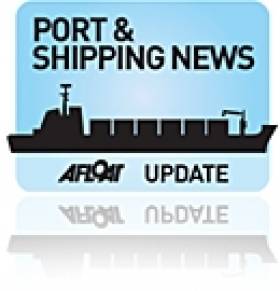Displaying items by tag: Liqued bulk
Port and Shipping Volumes Show Second Quarter Slowdown
Below is a list of figures for each transport mode based for the second quarter of 2011.
•Lift-on/Lift-off (lo/lo) trades remained static at 0%.
•Roll-on/Roll-off (ro/ro) export traffic was down by 1%.
•Dry bulk volumes increased by 5%,
•Break bulk volumes were down by 6%
•The Tanker/Liquid bulk market was down 6%.
For more in-depth analysis of each freight-transport mode issued by the IMDO and accompanied by graphic charts click HERE.
























































